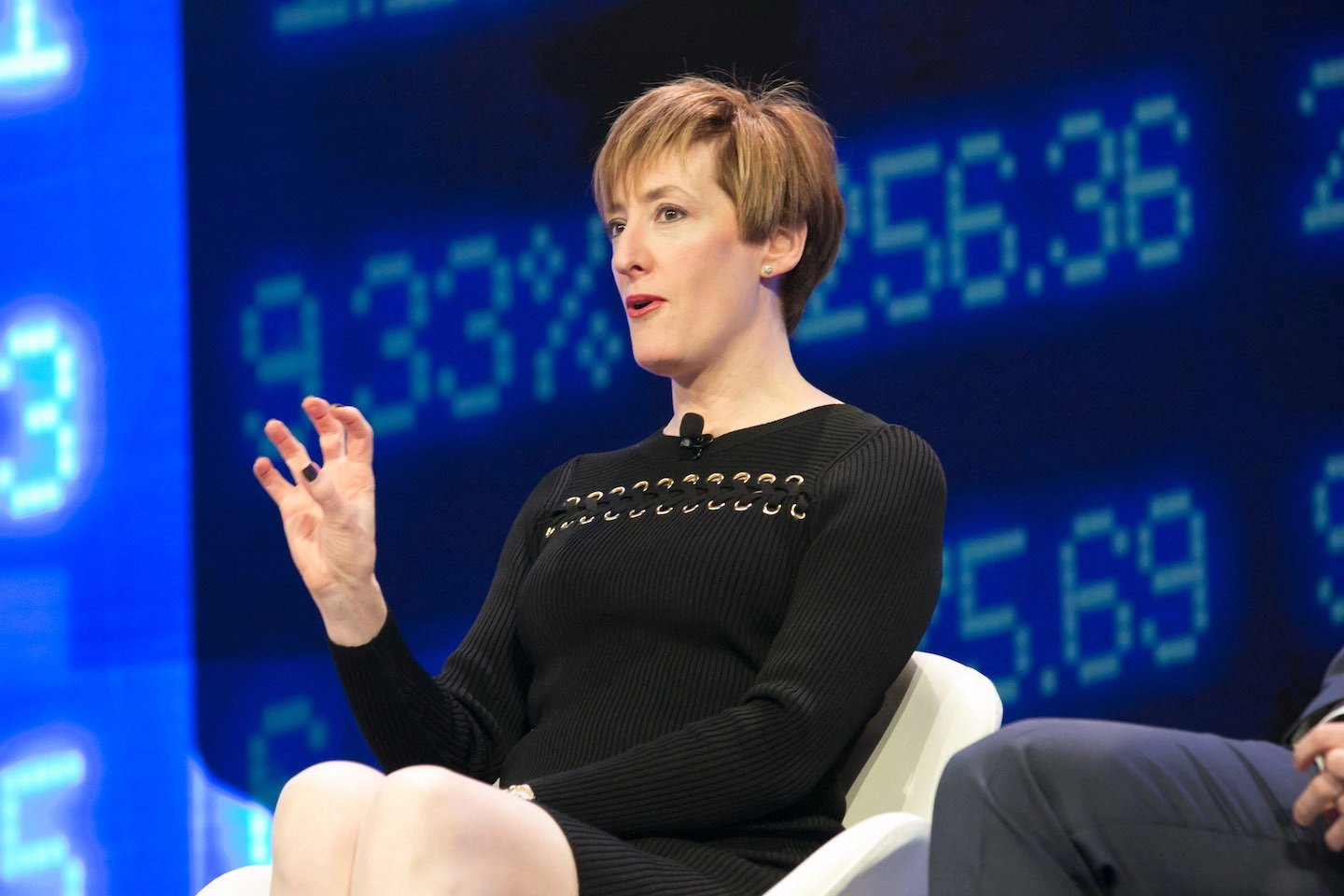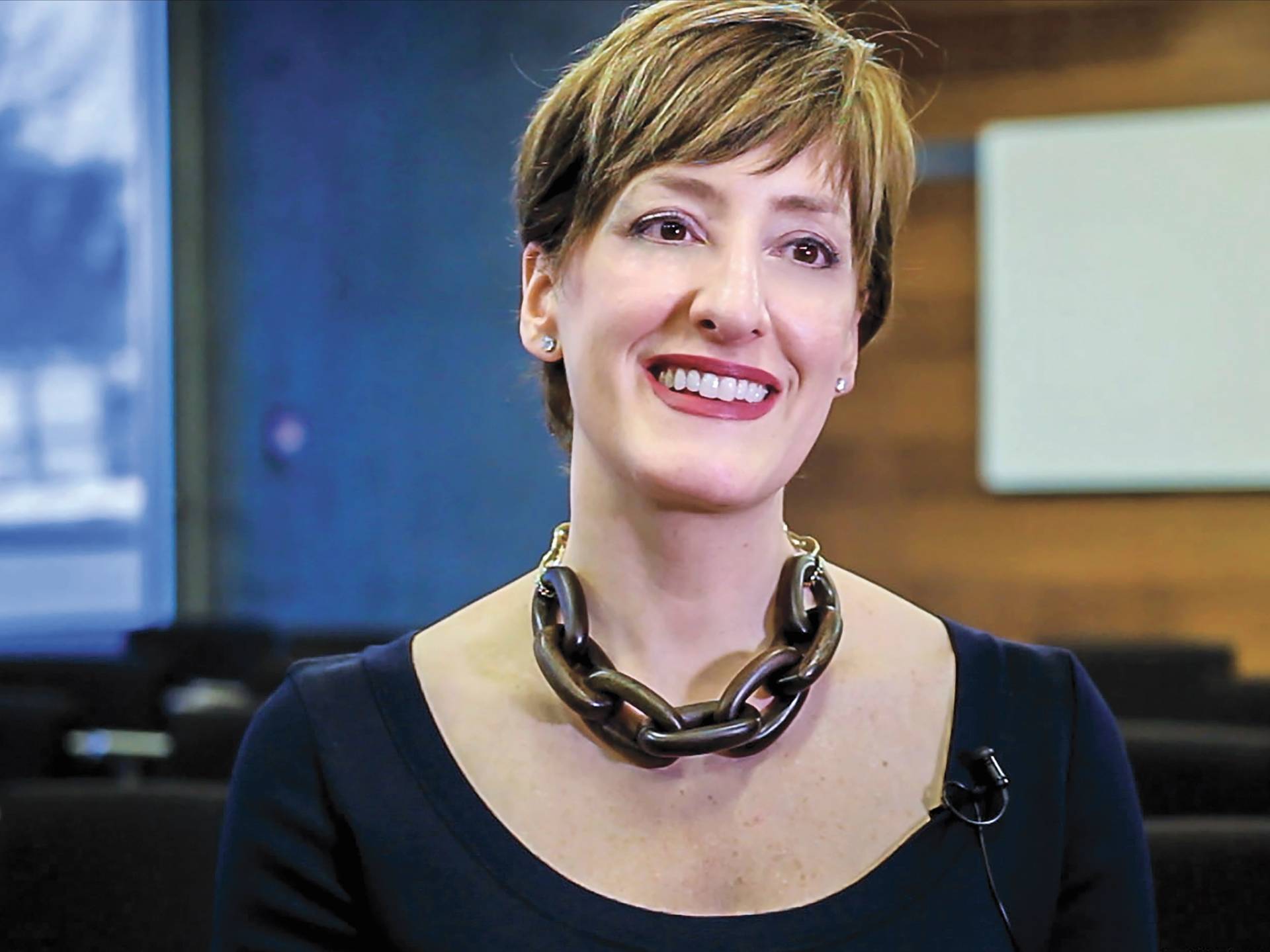Subscribe to wiki
Share wiki
Bookmark
Caitlin Long
The Agent Tokenization Platform (ATP):Build autonomous agents with the Agent Development Kit (ADK)
Caitlin Long
Caitlin Long is a financial executive focused on the intersection of digital assets and banking regulation. She is known for her involvement in crypto policy debates and for founding Custodia Bank, which aims to integrate digital asset services within the framework of U.S. financial law. [6]
Education
Long earned her BA in Political Economy from the University of Wyoming in 1990, an MPP in International Trade and Finance from Harvard Kennedy School, and her JD in Law from Harvard Law School in 1994. [2]
Career

Long began her career in finance as an associate at Salomon Brothers from 1994 to 1997. She then worked at Credit Suisse for a decade, serving as managing director until 2007. From 2007 to 2016, she held senior roles at Morgan Stanley, including head of the Corporate Strategies Group and head of the Pension Solutions Group. Concurrently, she served on the board of the University of Wyoming Foundation from 2003 to 2011. During this period, she also began studying Bitcoin independently and attending cryptocurrency events.
In 2016, Long transitioned to the crypto sector, becoming president and chairman of the board at Symbiont, a company developing blockchain solutions for finance, where she remained until early 2018. Later that year, she was appointed to the Wyoming Blockchain Task Force, contributing to the development of more than twenty blockchain-related laws until stepping down in late 2019. These laws laid the groundwork for recognizing on-chain assets and establishing Special Purpose Depository Institutions (SPDIs). In 2018, she also became chair of the WyoHackathon initiative, a role she continues to hold.
In 2020, Long founded Custodia Bank in Wyoming, where she serves as CEO. Custodia operates as a Special Purpose Depository Institution, providing digital asset custody and access to the U.S. dollar payment system. It adheres to both federal and state regulatory standards, including anti-money laundering, know-your-customer, and 100% fiat reserve requirements. Between 2020 and 2024, the bank raised $51 million in venture funding. [2] [3]
Custodia Controversy
Custodia Bank faced significant regulatory challenges in its efforts to secure a federal banking license and access to a Federal Reserve master account—an essential requirement for participating directly in the U.S. payments, clearing, and settlement systems. After receiving a state banking charter, Custodia applied to the Federal Reserve Bank of Kansas City for membership and a master account. In 2021, the Fed delayed the application process and introduced new eligibility guidelines, prompting Custodia to apply for federal deposit insurance. With no resolution by 2022, the bank filed a lawsuit, arguing that the Fed was legally required to grant the account.
Following heightened regulatory scrutiny after the FTX collapse in late 2022, the Federal Reserve and other agencies warned banks against engaging with crypto-related firms. In 2023, Custodia’s application for a master account was formally denied. Despite this setback, Custodia continued operating by partnering with other banks to access the Fed’s payment infrastructure indirectly. The bank has pursued legal action to reverse the decision, though a federal court upheld the Fed’s position in April 2024. Custodia appealed the ruling and, in August 2024, reduced its workforce by 25% to conserve resources. As of January 2025, the appeal remains under review. [3] [22]
Interviews
Long vs. The System
In a discussion about the evolving landscape of banking and cryptocurrency regulation, Long shared her insights on the challenges faced in obtaining a master account from the Federal Reserve while advocating for responsible innovation within the financial sector. Reflecting on her experiences, she noted that the regulatory environment had historically favored established banks, often at the expense of emerging financial technologies. However, this could now be shifting with the introduction of a stablecoin bill that promised to treat non-banks on equal footing with traditional banks.
Long highlighted issues of corruption and favoritism within the regulatory framework, illustrating her points with anecdotes about attempts to debank her company and the broader implications for the financial ecosystem. As cryptocurrencies gained mainstream adoption and regulators sought to expand their oversight, Long emphasized the need for systemic changes to ensure fair treatment and innovation in banking, particularly for community banks and fintech companies. Ultimately, she expressed optimism that ongoing reforms could lead to a more balanced and competitive banking landscape in the future. [7]
Custodia v. Federal Reserve
On the Crypto in America podcast, Long recounted her experiences and insights from a prolonged legal struggle with the Federal Reserve over the denial of Custodia's application for a master account. Long, who transitioned from Wall Street to the cryptocurrency sector, emphasized her belief in crypto as a means of financial freedom and a response to inefficiencies in traditional banking. Custodia aimed to bridge the gap between cryptocurrency and traditional finance, advocating for equitable treatment of crypto firms within the U.S. banking landscape. The conversation highlighted regulatory challenges and the evolving relationship between crypto companies and banks, especially in light of historical incidents of debanking and potential reforms in response to the shifting dynamics within the financial sector. Long expressed concerns about existing corruption and the need for substantial changes to prevent industry manipulation while remaining hopeful about future outcomes in her legal battle and the broader crypto ecosystem. [8]
Banking x Bitcoin
On the “You’re The Voice” podcast, Long shared her insights on the intersection of banking and cryptocurrency during an event in Las Vegas. Reflecting on her experience on Wall Street, she recounted the panic during the 2008 financial crisis, which sparked her interest in exploring alternative economic theories. Long discussed her efforts to establish Custodia Bank in Wyoming, aimed at bridging the gap between traditional finance and the crypto sector, and highlighted the challenges posed by regulatory hurdles and the Federal Reserve’s stance on new bank charters. She expressed concern about the lack of privacy in financial transactions and the ongoing debate over the role of stablecoins and CBDCs in the evolving monetary landscape. Long also detailed the legislative progress in Wyoming, which had made significant strides in creating a favorable environment for blockchain technology through various laws defining digital assets. The conversation underscored her optimistic view of the future of Bitcoin and cryptocurrency, driven by organic adoption and innovation despite regulatory pressures. [9]
Multi-Billion Dollar Opportunity
In a conversation following JD Vance's speech at Arch Public, Long sat down with The Wolf of All Streets podcast and addressed the ongoing challenges facing the crypto industry, particularly highlighting that Operation Chokepoint 2.0 was not yet dead, as Vance claimed. Long discussed her advocacy efforts, including litigation against the Federal Reserve, and emphasized the partnership between Custodia and Vantage Bank to issue tokenized bank deposits using stablecoin technology. This collaboration aimed to facilitate swift cross-border transactions and reduce costs for businesses, such as a Mexican trucking company. Long noted the regulatory hurdles posed by the current administration and expressed concern about retaining problematic personnel within federal banking agencies. Despite these challenges, she remained optimistic about the future of Custodia and the potential for innovation in the banking sector while continuing to seek a master account from the Fed. [10]
Crypto Banking
During a fireside chat at ETHDenver, Long and journalist Brady Dale discussed the challenges of crypto banking in the face of evolving regulatory landscapes. They reflected on a statement from January 2023 by the Federal Reserve, FDIC, and OCC, which suggested ambivalence towards crypto, and many interpreted this as a precursor to stricter banking limitations affecting the industry. Long recounted Custodia's experiences with being debanked multiple times and emphasized the historically significant role of banking in determining success in the crypto space. They discussed the potential implications of upcoming legislation regarding stablecoins, revealing a complex interplay between traditional banking structures and emerging crypto technologies. Long advocated for a model that ensures stablecoins are fully backed by cash to prevent the risks associated with conventional fractional reserve banking. Meanwhile, the group examined the future of stablecoin regulation and the evolving landscape of decentralized finance. [11]
Struggles and Risks
In The Bitcoin Layer’s “Guest Lecture” series, Long discussed her visit to Washington, D.C., where she met with Congressional staff investigating "Operation Choke Point 2," which aims to examine the Federal Reserve's oversight and potential misconduct. She expressed concern about the possibility of the government converting a Strategic Bitcoin Reserve into a bailout fund for Bitcoin custodians, emphasizing the dangers of over-leverage in the crypto space. Long warned that powerful entities might exploit such a reserve for their benefit during financial crises, citing historical instances of political influence affecting financial regulation. She highlighted the ongoing tensions between the Federal Reserve and Congressional oversight, speculating on the implications for future fiscal policies and regulatory frameworks within the crypto industry. Overall, Long urged caution regarding the government's involvement with Bitcoin, advocating for careful legislation to prevent potential misuse of a federal Bitcoin reserve. [12]
See something wrong?
The Agent Tokenization Platform (ATP):Build autonomous agents with the Agent Development Kit (ADK)
